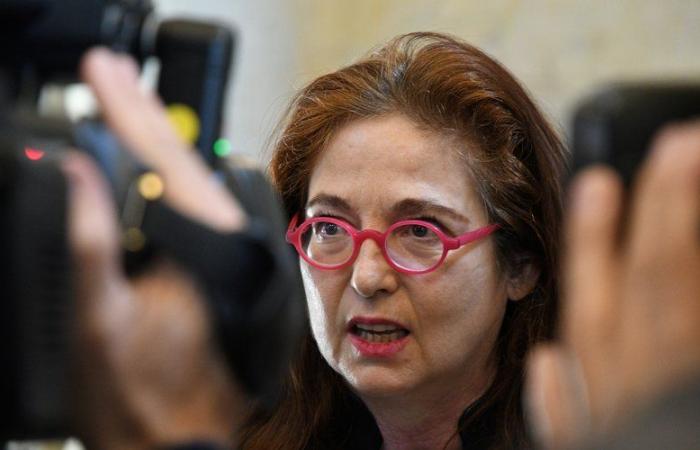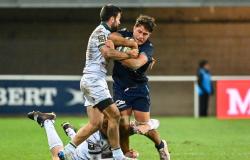
Montpellier lawyer Catherine Szwarc represents the association of victims of attacks at the special assize court in Paris where eight defendants are being tried. Two for complicity in terrorist assassination and six for association of terrorist criminals in the case of the death of history and geography professor Samuel Paty, beheaded in front of his college on October 16, 2020. She looks back on this first week of debates.
What do you remember from this first week of hearing?
The debates are very dense, with a very trying rhythm and a high point, Thursday, when we viewed the close-up photo of the body of Samuel Paty, decapitated by Mr. Anzorov, with his head next to it, it was a very hard moment, it's the horror that unfolds on the screen. The testimony of the victims, of the Paty family, on Friday, was also a very emotional moment.
How are the eight accused behaving?
While viewing the photo, I looked at their reaction, I didn't notice any particular reaction. In the digital “jihadosphere”, there are a lot of images of beheadings, some people are perhaps not shocked in the same way…
And basically, only Ismaïl Gamaev (22-year-old Russian of Chechen origin, who had exchanged jihadist messages with Anzorov, the assassin of Samuel Paty, editor's note) recognized his responsibility, said it was horrible and cried, he had looks sincere. For the victims, this recognition is important. Because the other seven dispute everything. They believe they are completely innocent of what happened. They say they are innocent and without responsibility.
And Priscilla Mangel from Nîmes?
She arrived veiled on all sides, seems very religious, she believes that she had nothing to do with it. But she met her current husband on social networks, she moved to Gard, where she had family. And this man was still sentenced to 14 years of criminal imprisonment for acts of terrorism and she is going to see him in prison with her two children. Despite this conviction, she talks about the future with him…
Brahim Chnina, the father of the schoolgirl who started everything by falsely accusing Samuel Paty, apologized on Wednesday.
He apologizes, he says it's horrible, but there is no acknowledgment of responsibility, even moral. We are before the special assize court, of course, but whatever the verdict, the blood on their hands is now indelible, given what happened and what they recognize (Chnina had led a vast cyberharassment campaign against the history professor Editor's note).
They do not even recognize that their attitude was one of the elements of this chain, deliberate as the accusation says, or involuntary as they deny, but chain nonetheless.
Does the issue for the civil parties remain the same?
There are several issues. First, the search for truth, the establishment of responsibilities and their recognition. But in these criminal responsibilities, beyond moral responsibilities, will emerge that of the entire system of social networks and the echo they give to people who are radical, dangerous, who incite hatred, without ultimately a lot of control.
That's to say ?
We are in a society where we have built an intelligence service, methods to prevent terrorist acts, to stop them at the moment they could be conceived, thanks to the crime of terrorist criminal association.
The problem is that these intelligence services and in particular the Pharos reporting platform, their functioning leaves something to be desired because there are not enough staff. This is also what we learned from what the anti-terrorist sub-directorate told us at the helm.
There have been reports of publications by Mr. Anzorov with aggressive content. But the filter of this platform means that even if there is a person who is in France, with a refugee card until 2030 and who says hateful content through tweets, threats, but about foreign countries and not France, we don't worry about it.
The reality is that this person is on the territory and it is chilling to realize that nothing was done when the reports were made.
How are the parties reacting?
The defense will try to draw an argument from this: how could the accused see that this guy was dangerous and take action, even though the specialized services saw nothing? It's too easy an argument.
Despite everything, for the victims, to say that there had been an awareness, if each time a person in France developed hateful content with a desire to fight, if they were at least monitored, then we would not be not at trial.
The question of targeting teachers also arises.
Yes, we are here for the assassination of Samuel Paty, but also for the community of teachers, today they are a target. Do we live in a country where we accept that certain categories of professionals are targets? Because they represent the Republic, just like the police.
The victims' hope is also that this trial has meaning, that it contributes to triggering general and political awareness to prevent a profession from becoming a target. Samuel Paty was someone non-violent, open, who walked around with a flowered backpack.





